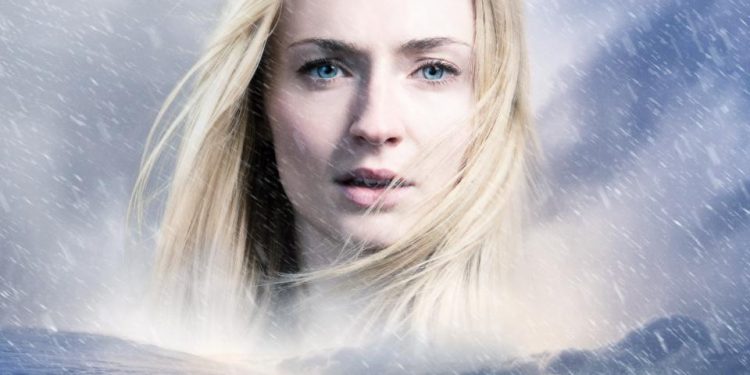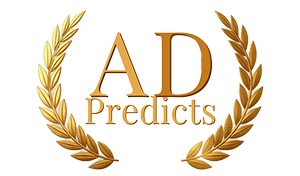Peter G. Adams has been composing for over a decade in movies, television and video games. Here, in his conversation with Awards Daily, he talks about his work on Survive, one of the launch day shows on the new streaming service Quibi. Adams talks about his process in creating music in different mediums and where his passion for the these mediums inspires him.
Survive is now available with daily episodes on Quibi.

Awards Daily: What attracted you to this project?
Peter Adams: Well, it’s pretty wonderful. I got a chance to read the script before I saw it and get a feel for it. And immediately I connected with the script, it’s a beautiful story. Then thinking about what it was going to be like before I even saw it I knew it was going to be an amazing adventure. So it seemed like kind of a no-brainer to want to do it. Also I sort of knew Mark Pellington (show creator), he was the one that kind of brought me on to the project and I’m a big fan of his work through the years so getting to work with him was great. It was a wonderful experience.
AD: Within the show suicide is a major theme. Did that influence your approach to the work?
PA: Yeah, it’s a subject that is always difficult to handle in cinema. In real life it is always a question mark for the people left behind and I find in cinema that it’s like, okay that’s the way that was handled, is that all there is? And you’re always kind of left with a feeling of emptiness and confusion in real life dealing with these kinds of things. We do have one scene that deals with the idea of suicide and it’s a kind of broken sounding, and I try not to do it up too much; keep it very minimal and stay out of the way a little bit, musically speaking. To allow the actors and the pace of the show to play the moment in a way that is unvarnished.
AD: That goes into my next question. Your music is used a lot to build the tension or create an unsettling mood. How do you go about figuring out what kind of music is going to create that mood? Because I found it very effective.
PA: That’s great to hear and that’s an interesting question. In music the tension and the release of tension is kind of what music is all about in a general sense. Then when we come to something like Survive, where I tried to establish a kind of dark and moody pallet at first. Then also have these kind of moments of beauty and emotion as we go on, and so for the tension elements specifically one of the things I do a lot in my scores is I try to do a sound design portion. Even before I start writing notes I’ll pull instruments down and just start playing notes and create these ambient noises and start to create a mood and a vibe. From there I start to make a composition, and create notes on top of those. I did that here, and in Survive the tension comes from notes that are rubbing against each other. And tension that comes from sounds that are maybe just a little unsettling: a bow rubbing on a string or or maybe something we say like a crescendo where it gets louder that makes you feel like things are going to happen. Does that answer your question?
AD: Yes! In fact you made me think of a scene on the plane before it is crashing. I remember the sound of the plane was being used as part of the music, building the tension. Was that on purpose?
PA: It was on purpose. You can hear the plane speeding up as it’s falling, and then there are these score elements that are rising in pitch and starting to rub against each other as the plane is falling. That is definitely what I tried to do for this point. Also something Mark Pellington really likes using the overall sound pallet for his movies, like there’s a sound design world and there’s a score world, but maybe those two things are just one thing. So when I had the production tracks for the sound of the engines I tried to emulate that but make sure that the score sat a little bit apart from it so it wasn’t so confusing that the whole thing wasn’t one big thing. But then once they mixed it all together it starts to feel like reality. Is it the score with the people on the plane are hearing or is it the engine that the people are hearing?
AD: I noticed there are a lot of strategic quiet moments, it’s just the two actors talking with no score. It’s like you were building up the quiet moments before the score came in. How did you go about deciding when you wanted quiet and when you wanted the score?
PA: I think a lot of that is decided between the editor and the director and I’m coming along and paying attention to what they’re doing. There wasn’t a lot of time on this one to talk everything through, and they relied on me to listen to what they were doing and then try to do something that was out of my boundaries in scoring things that they had left silent. Sometimes I’m on a project and maybe I want the music to go on for a lot longer, because it can be interesting to do that. There are definitely a lot of projects where I’ll get something where an intense score is used in a lot shorter elements. I’ll take those and go okay, let’s combine the places where they use music into one larger musical section. I didn’t do that as much here. I want to respect Mark’s vision to shape his theme the way he wanted it to be. And me to try and see his vision through.
AD: Another part I noticed was there is subtle singing over some scenes . “Never Worship” was a line. Was that music your choice as well, and if so, how did you decide between instrumental and human voice for the sequences?
PA: So, those are just some of the songs that Mark put into Survive, Mark loves those kinds of songs, anything that’s haunting. I didn’t include vocals in scores as much because we had that sound from songs Mark put into Survive.. If I did something similar, maybe I would have a violin play, or a quiet low guitar, but there is not much solo vocals in the score.
AD: I was looking over your filmography and you have done movies, TV, video games. Is there a different process for you depending on the medium?
PA: Absolutely. One of the things people have been asking me with Quibi, with it being a new short form, have I done anything different in terms of the style of scoring this show? My answer was I really tried to make it as big and cinematic and beautiful as possible. So hopefully if you were ever to see Survive on the big screen and hear the score you would think,”yeah, this work this feels like a movie.” Even though it’s something you’re getting in small bits it has a broad and beautiful cinematic feel musically. When I do other things like video games or TV or films I try to keep the bar high and cinematic. and when I say that, I think about things that move you and pieces of cinema that are important to people.
So whether it’s a TV show or a beautiful movie or a video game, if there’s a moment I can do something that sounds cool to the audience, or if it moves them emotionally, I always try to get those things out of any score no matter where it goes. Now with a video game, sometimes it’s a very different need, like if they just need action then I’m just writing action the whole time or if you need suspense, I’m just writing suspenseful the whole time. I just try to keep a consistent high bar throughout the entire project that I do, and that is how I do it.
AD: That is very encouraging to hear. I am a big fan of movies, TV and video games, and music is an important aspect to all of them. So that is great to hear that the same level of care is going into all three.
PA: I try, if you have any more specific questions about the process I can try to answer
AD: I have been getting into video games more so am curious about that.
PA: Well, video games have cut scenes that are cinematic where you watch the character go through a couple minutes of interacting with other characters or something happens that’s part of the narrative. So those scenes are very similar to what we do with anything else. You have the score come in at the moment when those scenes start. What is different about games is the interactive quality. Some games I’ve worked on like Far Cry 4, for instance. I was writing multiple pieces into one piece because I knew they were going to have three to four layers of things coming in and those things were going to be triggered at different points during the scene. So they might start one part of my music at the beginning and then a couple minutes later bring in another part of my music but not necessarily start it where I thought it would start.
It needs the kind of work where the music plays against itself throughout any part of itself. It’s not as linear; it needs to be able to pull back on itself and work against itself no matter what. One of the things they do with those kinds of interactive themes is that they feed it into their software, and then the software chooses when things start and stop. It makes things more open. You are not so worried about moment for moment did I get this right did I get that right? I’m the composer but I know that it’s going to be ripped apart and recomposed by the game itself. It’s kind of a cool experience to do, but it is different from the usual.
AD: Well, since we’re talking about a television show, how is writing music for that different?
PA: Television has changed so much. When I started off writing for Network TV you felt that was its own style apart from film. But for a long time now, ever since the advent of Netflix, people are starting to see TV as more of a long form film format. So TV shows that I’ve worked on recently I just try to do them like a film as much as possible, and I did the same thing for Quibi with Survive, looking at it and seeing if I can do this as a film. The only other thing that’s different with Survive is as the episodes end it was useful to ramp up the tension and create a cliffhanger for the audience. I did that more in this series than I would have done if all the episodes were connected in one movie.
AD: So, what got you interested in making music and for these mediums in particular?
PA: I’ve been a lifelong musician. I started really young and I was always doing some kind of music, I changed it around from one thing to another thing. Even when it was time to go to college I kept it up and eventually majored in music. So it was a big part of my life and I always liked film scores, but I’m from Florida and I didn’t think it was a big possibility that it was something I would do initially. But I came out to California just to visit and started kinda interning with another composer. I noticed that the people here in the film business were very similar to what I was doing already writing music on my own. And it appealed to me both in an artistic sense and a commercial sense, as a composer I was writing art pieces that were very challenging but also playing in bands and producing music as an electronic producer.
So coming into film and TV I could take all those pastimes of mine and combine them creatively because they were all useful in this medium. So that was amazing, and I also really love movies and there are moments when a movie really touches you and feels emotional is one of the things I love in life. And then all of sudden now it was like wow, I actually get to do this and make it go at it,so it seemed like a no-brainer. I’ve been fortunate enough to work in this business for a while now and really love it.
AD: That was beautifully said, you just made me flashback to some of the first times watching a great film and knowing that it is going to be a great experience. That’s a great reminder so thank you for that.
PA: No problem, it’s a shared experience too. especially now during the Coronavirus pandemic, people just need comfort and to be lifted up some way. Movies are so great for that, and TV as well.
AD: Are there any other thoughts you want to leave our readers with?
PA: Well, I hope they go see the series. It’s a wonderful journey, and where it goes you will appreciate how it ends up. It’s what I like about the series is that it pulls the rug out from under you and turns everything on its head,then goes on from there and you get to see what people do with those kinds of extreme experiences and how they come out. I think it’s pretty relevant for today with what everybody’s going through right now. That’s my one plug. It’s worth seeing to the end if you get a chance.













